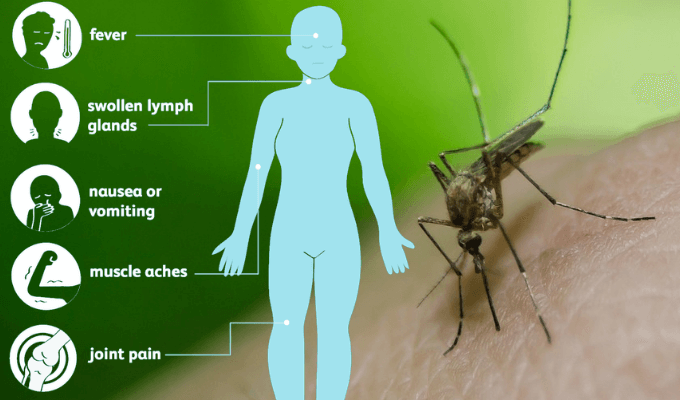The Chicago Department of Public Health (CDPH) has confirmed the first West Nile virus (WNV)-positive mosquitoes of the year in the City, identified in three Chicago community areas: Greater Grand Crossing, Roseland and West Pullman. The Illinois Department of Public Health previously confirmed the first mosquitoes to test positive for WNV in the state on May 17. No human cases of WNV have been reported to date this year.
West Nile virus is the most common mosquito-borne disease in Chicago and the United States, so it remains important to prevent its spread. CDPH has a robust mosquito control program, which includes treating 80,000 catch basins in Chicago with larvicide to kill immature mosquitoes, collecting and testing mosquitoes for WNV, and spraying in specific geographic areas to kill adult mosquitoes if needed.
“Mosquitoes are a common nuisance around Chicago during the summer months, and can sometimes carry serious illnesses,” said CDPH Commissioner Olusimbo ‘Simbo’ Ige, MD, MPH. “The best way to protect yourself from mosquito-borne diseases is to avoid mosquito bites and take measures to stop them from breeding around your home.”
Chicagoans are encouraged to take precautions against mosquitoes:
- Use insect repellant that contains DEET, Picaridin, IR3535, or Oil of Lemon Eucalyptus according to label instructions.
- Eliminate standing water – Empty water from any outdoor containers, such as flowerpots, gutters, pet water dishes, and birdbaths on a weekly basis.
- Keep grass and weeds short to eliminate hiding places for adult mosquitoes.
- When outside between dusk and dawn, wear loose-fitting, light-colored clothing, long pants, socks, and shoes.
- Make sure that all screens, windows, and doors are tight-fitting and free of holes. Repair or replace screens that have tears or other openings.
WNV is typically spread to humans via the bite of an infected Culex mosquito, commonly called a house mosquito. While most people infected with WNV do not feel sick, about 1 in 5 people develop a fever and flu-like symptoms. Severe illness can occur in about 1 in 150 people and is most likely in people over age 60. Because there are no specific medications to treat WNV in people, the most effective method to prevent infection is to prevent mosquito bites.
For more information about mosquito-borne diseases, including symptoms and prevention, visit chicago.gov/health. To report standing water, dead birds or high grass/weeds, call 311.






